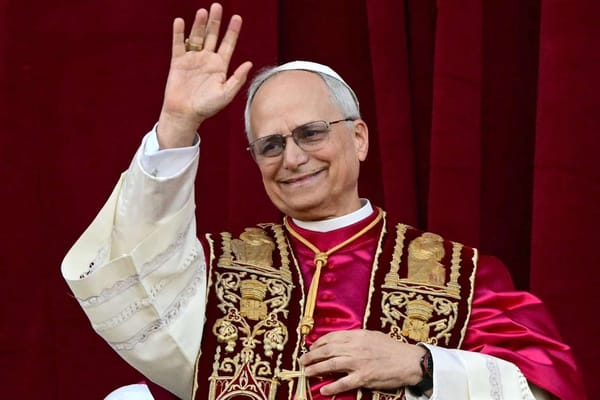Resurrection or Reincarnation? The Spiritual Truth Every Christian Must Know
Discover why Christians reject reincarnation and embrace resurrection, rooted in Scripture, Church teaching, and the sacramental life.

Introduction
In John 14:6 Jesus said, “I am the way, and the truth, and the life. No one comes to the Father except through me.” As we grow in our faith it is important to continue to check that our beliefs are grounded in the teachings of Jesus, truths safeguarded for thousands of years by the Church he founded. A few months ago, I was having a conversation with a dear friend who has a strong faith and is active in her church. She has recently read an inspirational self-help book that espoused the belief in reincarnation and my friend was starting to believe in it, mixed in with her Christian faith. The idea of having multiple chances of living a holy life before the final judgement sounded appealing. Guess what, this happened to me many years ago as well. I too started to believe in reincarnation, less allured by the multiple chances of life, and more as an explanation why we seem to have such a strong bond with some people from the start and some places seem really familiar.
What happens after we die? This is one of the most enduring questions of the human heart. While Christianity has always taught the resurrection of the body and eternal life, reincarnation, the belief in being born again in another life, has gained popularity, even among some Christians. But are both compatible? What does our faith teach? In this article, I’ll explore why Christians are called to believe in the resurrection, not reincarnation, and how this spiritual truth shapes the way we live a sacramental and spiritual life.
What Is Reincarnation?
Reincarnation is the belief that the soul is reborn into a new body after death, repeating this cycle many times in order to grow spiritually or pay off karmic debt. I’m being simplistic in my definition. Hinduism and Buddhism have different views about “what” is reincarnated. In Hinduism and Buddhism, rebirth could be into an animal or insect due to really negative karma. Some forms of New Age spirituality assume a kind of spiritual evolution across lifetimes.
What Is Resurrection?
Resurrection, is the Christian belief that at the end of time, the dead will rise, body and soul united in glorified form. In the first century Judaism the Pharisees believed in the resurrection of the body, while the Sadducees did not. Our belief in the resurrection of the body is rooted in the resurrection of Jesus Christ. As far back as 325 AD the early Christians codified their beliefs in the Nicene creed, finalized in 382 AD, and those beliefs included “I believe in the resurrection of the body and life everlasting.” We pray the Nicene Creed every Sunday during Mass.
The Spiritual Truth Revealed by Scripture
Sacred Scripture makes it clear that we live one earthly life, followed by judgment:
“It is appointed for men to die once, and after that comes judgment.” (Hebrews 9:27)
This verse leaves no room for reincarnation. It emphasizes that this life is a sacred and singular opportunity to respond to God’s grace. As St. Paul reminds us:
“Now is the acceptable time; now is the day of salvation.” (2 Corinthians 6:2)
Jesus, the model for all humanity, did not reincarnate. He suffered, died, and rose in a glorified body, never to die again:
“We know that Christ, being raised from the dead, will never die again; death no longer has dominion over him.” (Romans 6:9)
After his resurrection, he ascended into heaven (Acts 1:9). This is the destiny he promises to all of us who follow him. Not another life on earth, but eternal life with him, the angels, and saints.
The Sacramental Life Is for This Life
The Christian path is lived out in this life through the sacraments: Baptism, Eucharist, Confession, and others. These are means of grace to grow in holiness now:
- Baptism is received once. Through Baptism we spiritually die and are reborn united to the body of Christ. Our sins are forgiven and the Holy Spirit dwells within us.
- The Eucharist provides a deeper union with Christ, nourishes our soul, increasing grace and growth in holiness, and strengthens us against the temptations of Satan.
- Confession restores us in our weakness. It forgives the guilt of our sins and returns us into close communion with God, into a state of grace.
There is no second earthly chance. We are called to live a sacramental and spiritual life with urgency and gratitude. This may seem daunting, but God offers the graces that we need to live a life of virtue and to intensely love him and others. He is constantly extending his hand to us, we just need to choose him, to choose love.
The Church's Definitive Teaching
The Catholic Church has always had a clear teaching about reincarnation: “Death is the end of man’s earthly pilgrimage; of the time of grace and mercy which God offers him... there is no ‘reincarnation’ after death.” (Catechism of the Catholic Church, 1013)
The Church has affirmed that human beings live once, die, and are judged by God. The final destiny of the soul is heaven (possibly after purification), or hell—not another lifetime.
The saints show us that spiritual growth happens in this life. Through self-giving love, daily prayer, and sacramental living, we can become holy.
To delay conversion with the false hope of a future life is a spiritual danger. Reincarnation numbs us to the urgency of the Gospel.
What About People Who Never Heard the Gospel?
A common argument for reincarnation is fairness. What about those who never had the chance to know Christ? The Church addresses this in Lumen Gentium 16:
“Those who through no fault of their own do not know the Gospel... may achieve eternal salvation.”
God is both just and merciful. He judges each soul with perfect love. We don’t need multiple lives—we need to respond to God’s grace here and now. This is also why we are called to evangelization, to spread the message of the Gospel to all.
Conclusion: Choose Resurrection, Choose Christ
The promise of Christianity is not endless reincarnation. It is the resurrection of the body, eternal life, and joyful union with God. Jesus conquered death not to start a cycle, but to end it with victory.
Let us embrace the spiritual truth of the Gospel. Let us live today with purpose, receive the sacraments, grow in virtue, and trust in the resurrection:
“I am the resurrection and the life; whoever believes in me, even if he dies, will live.” (John 11:25)




